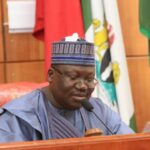*Commission plans to deploy 1m officers to 176, 846 polling units
By Ezeocha Nzeh
The Independent National Electoral Commission (INEC) has disclosed thst it intends to deploy an estimated 1melectoral officer to work at the nations176, 846polling units accross the country in the 2023 general elections
The INEC boss, who disclosed this a he unveiling ceremony of the commission’s 2023 Election Project Plan in Abuja, emphasized that the 2023 election will be governed by the new Electoral Act 2022, which contains many progressive provisions that will enhance the capacity of the Commission to conduct elections and manage the electoral process better, added that the Commission will by next week , conclude the revision of the Regulations and Guidelines for the Conduct of Elections, to comply with the provisions of the Electoral Act 2022.
He disclosed also that work has commenced on the review of the manuals for the training of election as the the Commission will now focus its attention on election technology and election administration.
“The documents presented today are the third in the series of strategic election plans since the era of deliberate planning of elections started in 2012.
” I am glad to report that these plans have been finalised ten months ahead of the 2023 General Election. As you may be aware, the election will be conducted for 1,491 constituencies nationwide made up of 1 presidential constituency, 109 senatorial districts, 360 federal constituencies, 28 governorship elections and 993 state constituencies.
“The election will involve an estimated one million electoral officials (both permanent and temporary or ad hoc staff) deployed to 176,846 polling units in 8,809 Wards and 774 Local Government Areas across the country.
“The election will be governed by a new Electoral Act 2022, which contains many progressive provisions that will enhance the capacity of the Commission to conduct elections and manage the electoral process better.
“The Strategic Plan 2022-2026 and the 2023 Election Project Plan drew lessons from, and thoroughly reviewed, the level of implementation of the last plans. They build on the successes of the preceding plans, especially in the planning and conduct of the 2019 General Election as well as off-cycle and bye-elections”
The commission noted further that the concerns are reflected in the Plan’s five strategic objectives, each of which identified several key actions, key activities and key outcomes that constitute a broad guide to the vision of the Commission to provide electoral operations, systems and infrastructure to support the delivery of free, fair, credible and inclusive elections.
“The Plan also forms the basis for the Election Project Plan which focuses on five key objectives identified by the Commission as critical for the successful conduct of the 2023 General Election.
“We are also aware of the security challenges and their impact on the electoral process. We will continue to engage early and intensely with the security agencies to ensure the safety of our personnel and materials, accredited observers and the media and, above all, the voters. Clearly, these are challenging times but we are determined that election must hold in 2023.
“However, this is a shared responsibility. INEC plays a critical role but the Commission alone cannot deliver the elections we all desire. I therefore appeal to all Nigerians to joins hands with us in ensuring that we make a success of the process, ” he stated
The INEC chairman reiterated that the dates for all activities in the Timetable and Schedule of Activities for the 2023 General Election are firm and fixed, even as he urged all stakeholders to take this into consideration in planning their activities.
On the ongoing Continuous Voter registration (CVR) exercise, the Commission noted that it will come to an end on 30th June 2022, and advised all eligible voters that are yet to register to do so on or before that date if they intend to vote.
“Furthermore, the PVCs of validly registered voters from the first and second quarters are already available for collection at designated centres nationwide. I would like to appeal to all Nigerians who registered between June and December 2021 to collect their Permanent Voters Cards (PVCs) in person as no PVCs will be collected by proxy.
“Let me also reassure those who registered between January and March 2022 as well as those who are doing so until the end of the exercise that their PVCs will be ready for collection long before the 2023 General Election.
“For emphasis, the Commission once again reiterates that PVCs have no expiry dates. We want to assure all registered voters that PVCs issued by the Commission remain valid for all elections. We have encouraged those who lost their voters cards or whose cards are damaged to approach any of the registration centres to apply for replacement. Similarly, voters who had issues with their accreditation in previous elections have been encouraged to revalidate and update their information. In addition, those who wish to transfer their registration from one location to another within a particular State or to relocate entirely to another State of the Federation can do so at any of the registration centres nationwide. These steps are in compliance with the law in order to serve Nigerians better.
“The claim that PVCs expire is misleading. Citizens are therefore advised not to register more than once as multiple registration is an offence under the Electoral Act. Anyone engaged in the act of double or multiple registration is liable to prosecution. No citizen should engage in it or encourage others to violate the law, ” the commission warned



